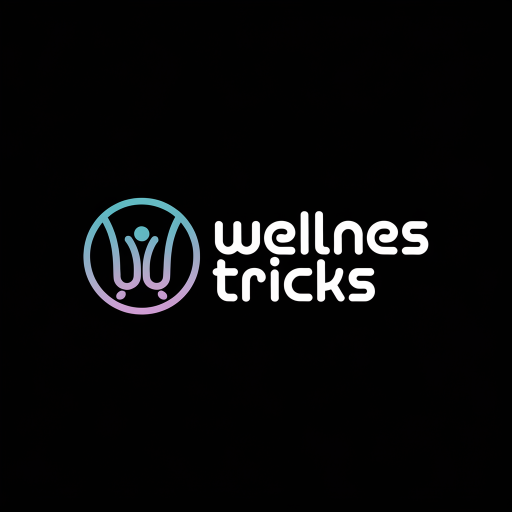What I Stopped Doing to Finally Feel Less Anxious
You might find that anxiety often stems from habits you’ve unconsciously formed. Negative self-talk, incessant scrolling through social media, or even your caffeine consumption could be contributing factors. By making conscious decisions to eliminate these triggers, you can create a more peaceful mental space. It’s about prioritizing your well-being and discovering what truly matters. But what if you could redefine your routine and make choices that uplift you instead?
Eliminating Negative Self-Talk
When you find yourself caught in a cycle of negative self-talk, it’s essential to recognize how deeply it can affect your mood and anxiety levels.
Challenging these thoughts is a necessary step toward anxiety relief. Start by identifying specific negative beliefs and questioning their validity. Ask yourself, “Is this thought really true?” This awareness can spark meaningful change.
Replace those harsh criticisms with kinder, more constructive affirmations. Remind yourself of your strengths and achievements. Affirmations for self-esteem can serve as powerful tools in this transformative process.
Taking these small, deliberate actions creates a positive feedback loop, helping you break free from negativity and pave the way for a calmer, more confident mindset.
Cutting Back on Social Media
Cutting back on social media can be a game-changer for your anxiety. When you scroll through curated highlights of others’ lives, it’s easy to compare yourself and feel inadequate. Instead, limit your time online and focus on real-life connections.
Set boundaries for usage, like designating specific times or days for social media. This simple act not only reduces exposure to negativity but also helps you reclaim your time and energy, allowing you to focus on what truly matters in your life. Additionally, incorporating simple nutrition changes into your routine can also significantly enhance your overall health and well-being.
Reducing Caffeine Intake
Caffeine can be a sneaky source of anxiety for many people. You may not realize how much this seemingly harmless pick-me-up affects your mood.
When you consume caffeine, it stimulates your nervous system, leading to increased heart rate and jitteriness, which can amplify feelings of anxiety.
Try reducing your intake gradually; maybe swap that second cup of coffee for herbal tea.
You’ll likely discover that lowering your caffeine consumption helps you feel calmer and more grounded.
Listen to your body—it knows best.
Avoiding Procrastination
Feeling more in control of your daily habits can significantly reduce anxiety, and tackling procrastination is a great place to start. When you put off tasks, anxiety builds. Instead, break your workload into smaller, manageable pieces. Here’s a quick look at the benefits of avoiding procrastination:
| Action | Benefit |
|---|---|
| Set clear deadlines | Keeps you focused and on track |
| Prioritize tasks | Reduces overwhelm by tackling one thing at a time |
| Celebrate small wins | Boosts motivation and confidence |
Incorporating quick mood reset techniques can further enhance your ability to stay focused and diminish feelings of anxiety.
Saying No More Often
While it might seem difficult at first, saying no more often can be a powerful way to reduce anxiety.
By setting boundaries, you give yourself the space to focus on what truly matters to you. It’s easy to feel overwhelmed when you’re constantly trying to please others or overcommit.
Remember, every time you say yes to something that doesn’t align with your priorities, you’re saying no to your own well-being.
Practice asserting your needs; start small if necessary. It’s okay to prioritize yourself—it’s not selfish, it’s essential.
You deserve to create a life that reflects your values and reduces your anxiety. Additionally, establishing healthy habits can further enhance your emotional well-being and help manage anxiety levels.
Limiting Exposure to News
In today’s world, it’s easy to feel overwhelmed by constant news updates that increase your anxiety.
By reducing the amount of news you consume, choosing trusted sources, and setting clear boundaries around your news intake, you can regain a sense of control.
Let’s explore how these steps can help you find peace amidst the noise.
Reducing Daily News Intake
How often do you find yourself overwhelmed by the constant barrage of news updates? Reducing your daily news intake can help you reclaim your mental space and lower anxiety.
Consider these steps:
- Decide on specific times to check the news.
- Limit the number of news sources you engage with.
- Focus on stories that truly matter to you.
- Use tools to filter news and reduce notifications.
Choosing Trusted Sources
Finding a balance in your news consumption is vital to maintaining your peace of mind, and part of that balance involves choosing trusted sources. Focus on outlets that provide accurate information and minimize sensationalism. Here’s a simple table to help you identify reliable sources versus less trustworthy ones:
| Trusted Sources | Less Trusted Sources |
|---|---|
| Reputable newspapers | Clickbait websites |
| Public broadcasting | Social media rumors |
| Academic journals | Unverified blogs |
| Expert opinions | Misleading headlines |
Establishing News Boundaries
While it’s essential to stay informed, overwhelming yourself with constant news updates can heighten anxiety.
Establishing clear boundaries around your news consumption can create a sense of control and calm.
Try to:
- Limit news-checking to specific times during the day.
- Choose one or two trusted sources for updates.
- Unsubscribe from unnecessary news notifications.
- Engage in mindfulness or hobbies after checking the news to decompress.

